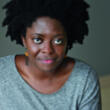The nickel boys: a novel
Author
Publisher
Varies, see individual formats and editions
Publication Date
Varies, see individual formats and editions
Language
English
Appears on these lists
Description
PULITZER PRIZE WINNER • NATIONAL BESTSELLER • This follow-up to The Underground Railroad brilliantly dramatizes another strand of American history through the story of two boys unjustly sentenced to a hellish reform school in Jim Crow-era Florida. • "One of the most gifted novelists in America today." —NPRNOW A MAJOR MOTION PICTURE NOMINATED FOR AN ACADEMY AWARD® FOR BEST PICTURE AND DIRECTED BY ACADEMY AWARD® NOMINEE RAMELL ROSS When Elwood Curtis, a black boy growing up in 1960s Tallahassee, is unfairly sentenced to a juvenile reformatory called the Nickel Academy, he finds himself trapped in a grotesque chamber of horrors. Elwood’s only salvation is his friendship with fellow “delinquent” Turner, which deepens despite Turner’s conviction that Elwood is hopelessly naive, that the world is crooked, and that the only way to survive is to scheme and avoid trouble. As life at the Academy becomes ever more perilous, the tension between Elwood’s ideals and Turner’s skepticism leads to a decision whose repercussions will echo down the decades.Based on the real story of a reform school that operated for 111 years and warped the lives of thousands of children, The Nickel Boys is a devastating, driven narrative that showcases a great American novelist writing at the height of his powers and “should further cement Whitehead as one of his generation's best" (Entertainment Weekly).
More Details
Contributors
ISBN
9780345804341
9780385537070
9780385537087
9781984891402
9780385537070
9780385537087
9781984891402
Subjects
Subjects
Abuse of administrative power -- Fiction
African American boys -- Abuse of -- Fiction
African American Fiction
African Americans -- Civil rights -- Fiction
African American teenagers -- Fiction
Arlington Reads -- 2019/2020
Fiction
Frenchtown (Tallahassee, Fla.) -- Fiction
Historical Fiction
Literature
Racism -- Fiction
Reformatories -- Fiction
African American boys -- Abuse of -- Fiction
African American Fiction
African Americans -- Civil rights -- Fiction
African American teenagers -- Fiction
Arlington Reads -- 2019/2020
Fiction
Frenchtown (Tallahassee, Fla.) -- Fiction
Historical Fiction
Literature
Racism -- Fiction
Reformatories -- Fiction
Excerpt
Loading Excerpt...
Similar Titles From NoveList
NoveList provides detailed suggestions for titles you might like if you enjoyed this book. Suggestions are based on recommendations from librarians and other contributors.
Haunted men grapple with their childhood experiences in abusive reform schools (Nickel Boys) and Catholic-run residential schools (Indian Horse) in these moving novels. -- Autumn Winters
Both bleak, disturbing stories drawn from real life center on individual responses to almost unimaginable childhood trauma. Stylistic complexity refracts fragmented memories half-forgotten by necessity in each. -- Autumn Winters
In these 1960s-set coming-of-age novels, two kids at very different educational institutions -- one a black student at a Florida reform school (Nickel), the other a biracial boy at an exclusive NYC prep school (Colors) -- experience racist violence and trauma. -- Kaitlin Conner
Revealing the grisly underbellies of a harrowing residential school for Indigenous youth (Stealing) and a racist reform school for boys (Nickel), these historical fiction novels strike a disconcerting chord. Both are set in the mid-20th century. -- Basia Wilson
These books have the appeal factors emotionally intense, and they have the themes "inspired by real events" and "facing racism"; the genre "african american fiction"; the subjects "racism," "african americans," and "american people"; and include the identity "black."
These gritty and complex novels trace the after-effects of forcible detention on marginalized young people; in Jim Crow-era reform school in Florida (Boys) and Canadian residential schools (Indians). Both own voices stories focus on the struggle to survive such trauma. -- Erin DeCoeur
Young men suffer horrific abuse at an Indian Training School (This Tender Land) and a juvenile reformatory (Nickel Boys) in both historical novels. Nickel Boys is more brutal and disturbing than the lyrical This Tender Land. -- Autumn Winters
Set in the mid-20th century South and inspired by real events, these gripping and stylistically complex own voices novels star young African American boys confronting racist atrocities, whether they've witnessed a murder (Conversation) or survived an abusive reform school (Nickel). -- Kaitlin Conner
In these gritty and disturbing novels, poor African American teen boys grapple with racism, violence, and exploitation while living at a Jim Crow-era Florida reform school (The Nickel Boys) and a contemporary Louisiana labor camp (Delicious Foods). -- Kaitlin Conner
These books have the appeal factors disturbing, gritty, and stylistically complex, and they have the theme "facing racism"; the genre "african american fiction"; the subjects "racism," "sex crimes," and "african americans"; include the identity "black"; and characters that are "complex characters."
Set in Jim Crow-era Florida and inspired by actual events, both disturbing novels chronicle the hardships faced by young Black boys at an abusive reform school, though The Reformatory includes horror elements while The Nickel Boys does not. -- Kaitlin Conner
Readers looking for more information behind the real school featured in The Nickel Boys will want to check out disturbing true crime We Carry Their Bones. -- Kaitlin Conner
Similar Authors From NoveList
NoveList provides detailed suggestions for other authors you might want to read if you enjoyed this book. Suggestions are based on recommendations from librarians and other contributors.
Sharing a similarly dark, sardonic, and offbeat sense of humor, these inventive authors write startlingly original novels (and nonfiction) that lay bare the absurdities of modern American life. Playful prose and unconventional narrative techniques can be found in the works of both, which also meditate upon social and racial issues. -- Shauna Griffin
Both authors bend genre and use satire to deconstruct American racial politics, even though Colson Whitehead's humor is much softer than the acidly outrageous jokes of Paul Beatty. -- Autumn Winters
Writing in a variety of genres, these thought-provoking authors' pen highly inventive work that comments on humanity's penchant for self-delusion and control in the service of greed and fear. Both conjure likable, complicated protagonists who are often faced with seemingly insurmountable obstacles yet press forward. -- Mike Nilsson
Ta-Nehisi Coates writes nonfiction as well as fiction in graphic novel (appealing primarily to teens) and text novel form, while Colson Whitehead writes books intended for adults. Both provide views of African American experiences through engaging characters, innovative storytelling, and personal experience. -- Katherine Johnson
The inventive and unusual novels of Colson Whitehead and James P. Othmer share a similarly dark sense of humor and unconventional, original settings and plots. Shrewd social commentary can be found in the novels of both authors; however, Whitehead also incorporates meditations specifically on racial issues. -- Shauna Griffin
African-American authors James McBride and Colson Whitehead appeal to a wide range of readers with their fiction and nonfiction. Whitehead more often employs speculative or magical realist tropes in his fiction, but both develop unusual characters and offer thought-provoking, moving, sometimes bleak, and always richly detailed narratives. -- Katherine Johnson
These authors' works have the appeal factors bleak, stylistically complex, and unconventional, and they have the genre "african american fiction"; the subjects "african americans," "race relations," and "identity"; and include the identity "black."
These authors' works have the appeal factors bleak, stylistically complex, and unconventional, and they have the genre "african american fiction"; the subjects "north american people," "african americans," and "race relations"; and include the identity "black."
These authors' works have the appeal factors melancholy and spare, and they have the subjects "city life," "african americans," and "underground railroad."
These authors' works have the appeal factors leisurely paced, and they have the genre "african american fiction"; the subjects "american people," "north american people," and "african americans"; and include the identity "black."
These authors' works have the genre "african american fiction"; the subjects "african americans," "race relations," and "racism"; and include the identity "black."
These authors' works have the appeal factors bleak, stylistically complex, and multiple perspectives, and they have the genre "literary fiction"; the subjects "african americans," "identity," and "southern states history"; and characters that are "complex characters."
Reviews from GoodReads
Loading GoodReads Reviews.
Staff View
Loading Staff View.































